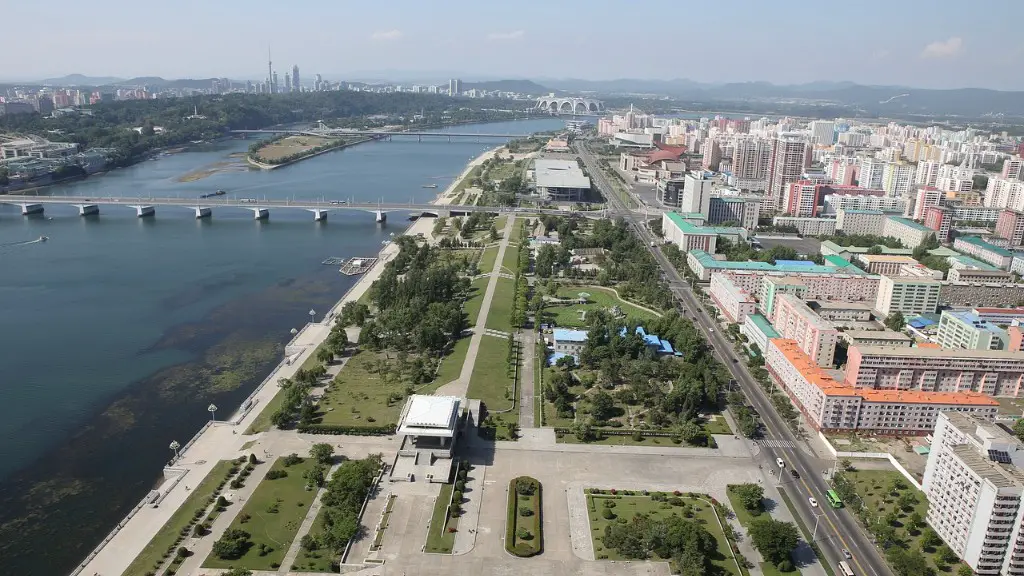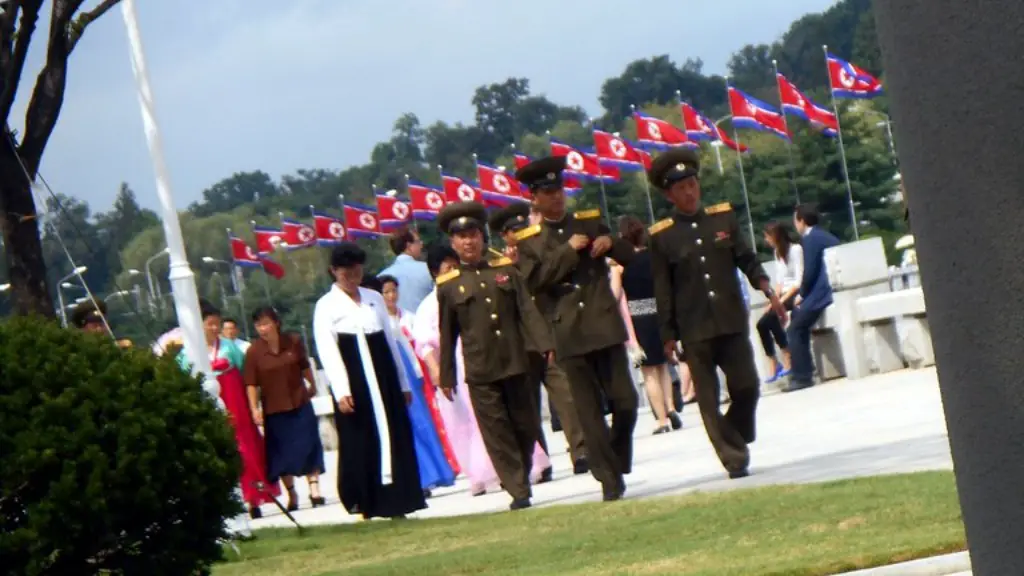Background Information on American Prisoners in North Korea
North Korea has a long history of detaining and imprisoning Americans, although many incidents are unacknowledged or kept secure. Since 1945 when U.S. troops entered the North Korean peninsula, North Korea has detained and held American captives. The United Nations Command (UNC) has reported that North Korea has detained up to 195 Americans since 1945.
North Korea is considered one of the world’s most oppressive regimes due to its consistent violation of human rights. It is reported that North Korea has had an even stricter policy against American prisoners since 1994. This is probably due to the tensions that escalated between North Korea and the U.S. after the end of the Cold War. Throughout the years, different U.S. administrations have had to grapple with the issue of securing the safety and release of these individuals.
The Treatment of American Prisoners in North Korea
The treatment of American captives in North Korea has varied over the years, with some reportedly being subjected to torture, forced labor, and lengthy incarceration. It is expected that as with all prisoners of North Korea, they would face extreme restrictions on movement and communication, as well as threats and isolation.
One of the most infamous cases of American prisoners is that of American Korean War veterans. They were captured by the North Korean military and placed in remote labor camps until the end of the war. The prisoners reported being subjected to hunger, torture and extreme weather conditions, with some reporting that they were forced to work on mining projects or construction projects.
In recent years, some American citizens have been arrested for alleged espionage or attempts to enter North Korea illegally from China. These individuals have faced even harsher conditions, including lengthy interrogations and solitary confinement.
Reaction of the U.S. Towards North Korea
The U.S. has reacted with strong disapproval of North Korea’s treatment of American prisoners. The U.S. government has repeatedly called on North Korea to release American prisoners and to respect the human rights of all individuals held in North Korean prison camps. This has included multiple efforts by the U.S. government to negotiate for the release of American prisoners. In 2014, the U.S. sent an envoy to try to secure the release of Kenneth Bae, the longest-held U.S. citizen in North Korea. In 2018, U.S. officials negotiated for the release of three American citizens from North Korea.
International Pressure on North Korea Regarding American Prisoners
The issue of American prisoners in North Korea has also been met with international pressure. The United Nations Human Rights Council is one of the most influential institutions in advocating for American prisoners in North Korea. The council has consistently spoken out against the inhumane conditions that the detainees face and has called on North Korea to end its oppressive policy against prisoners.
The international community and civil organizations have also applied pressure on North Korea. For instance, Amnesty International has documented the cases of American prisoners in North Korea and has encouraged the U.S. government to use diplomatic solutions to secure their release. Some campaigns have also been launched to pressurize the North Korean government to free these individuals, such as the Free Kenneth Bae campaign, which was launched by his family in 2014.
Increased Tensions Post Trump’s Meeting With Kim Jong-Un
The issue of American prisoners in North Korea experienced a major setback with the Trump-Kim Summit of 2018. After their meeting, President Trump declared that there would no longer be a “nuclear threat” from North Korea, which led to a lessening of pressure on North Korea regarding human rights issues. This was despite there still being three American prisoners being detained in the North.
Despite the sudden decrease in diplomatic pressure from the US, North Korea has continued to detain American citizens. Most recently, two Americans were arrested in April 2019. The situation has created an uncomfortable dynamic between the U.S. and North Korean governments, as the U.S. government has refused to ease sanctions on North Korea until American prisoners are released.
What Is Next For American Prisoners In North Korea?
It is difficult to predict the future of American prisoners in North Korea. The U.S. government has struggled to make progress in securing their release and it is unlikely that anything major will change in the short-term. However, with North Korea announcing that it is willing to resume nuclear talks with the U.S., some experts believe that this could be an opening for the U.S. to negotiate for the release of American prisoners.
Regardless of what the future holds for American prisoners in North Korea, it is important for the international community to continue to apply diplomatic pressure on North Korea to end its oppression of prisoners. Until North Korea improves its human rights conditions, these individuals will remain without help or hope.
Impact on the Families of American Prisoners
The families of American prisoners have had to endure the anguish of not knowing the whereabouts and condition of their loved ones. This has caused immense stress and fear, especially when communication with them is almost impossible. In some cases, the prisoners’ families have had to launch campaigns to secure the release of their loved ones, as in the case of Kenneth Bae’s family.
Many of these families have also had to cope with the unfortunate realization that their loved ones may not ever come back due to the inhumane conditions of North Korean prisons. This has had an immense emotional toll on the families, as they are unable to get closure on the situation of their loved ones.
The Legal Rights of American Prisoners in North Korea
Under international law, it is the responsibility of North Korea to guarantee the rights of prisoners, including American captives. This includes the rights to a fair trial, medical care, decent living conditions, and access to legal representation.
The North Korean government has continually denied American prisoners access to these rights, which has resulted in gross violations of international law and human rights. This has been met with extreme criticism from the international community and civil organizations, which have demanded for the North Korean government to respect the rights of American prisoners.
The Complexity of the Issue
The American prisoners in North Korea are currently in a very precarious situation. The North Korean government’s oppressive policies towards prisoners makes the situation even more complex and difficult to resolve. The U.S. government is faced with the dilemma of how to secure their release without compromising its relations with North Korea.
This dilemma is further complicated by the reluctance of North Korea to accept a humanitarian deal for the release of the prisoners. In addition, the U.S. government has to grapple with the issue of the prisoners’ families who are desperate for hope and closure.
Lost Opportunities for Diplomacy
The efforts of the U.S. government to negotiate with North Korea have also been stymied by lost opportunities for diplomacy. President Trump’s withdrawal from the proposed nuclear talks with North Korea has been seen as an abandonment of American prisoners in the North. The lack of diplomatic progress has also created a difficult and complex road ahead for securing their safety and release.
The international community must now come together to ensure the safety and release of American prisoners in North Korea. The U.S. government and civil society organizations must also continue to apply pressure on the North Korean government to respect the rights of prisoners, which is key to ending the suffering of these individuals.


